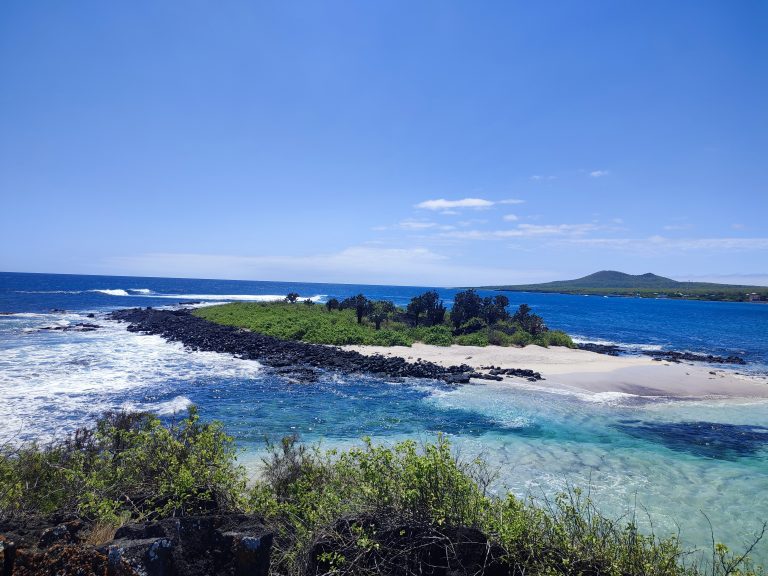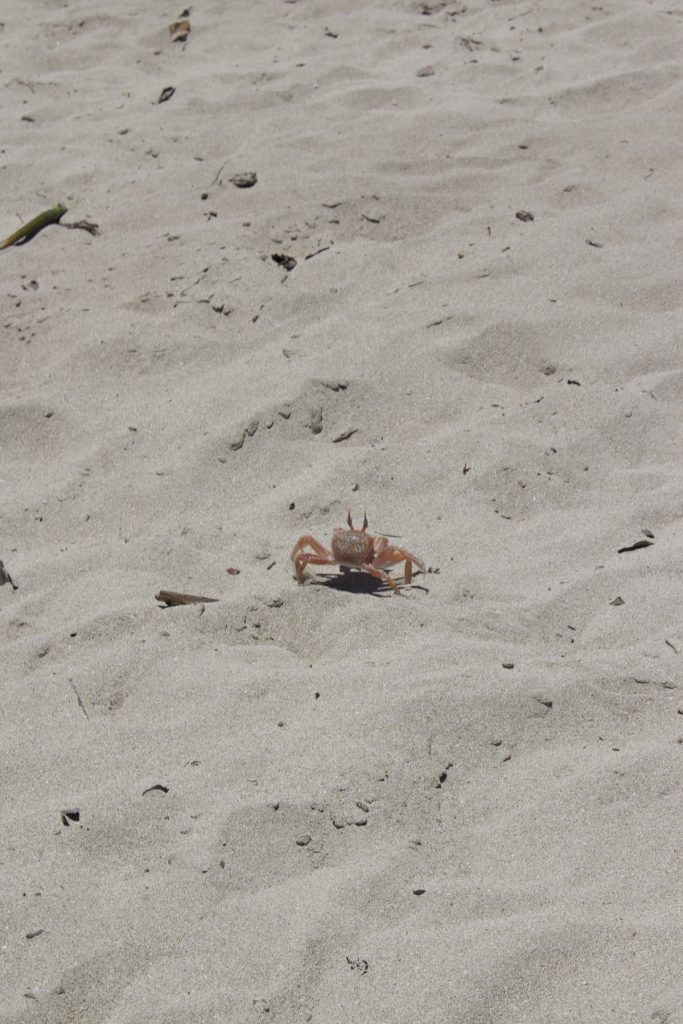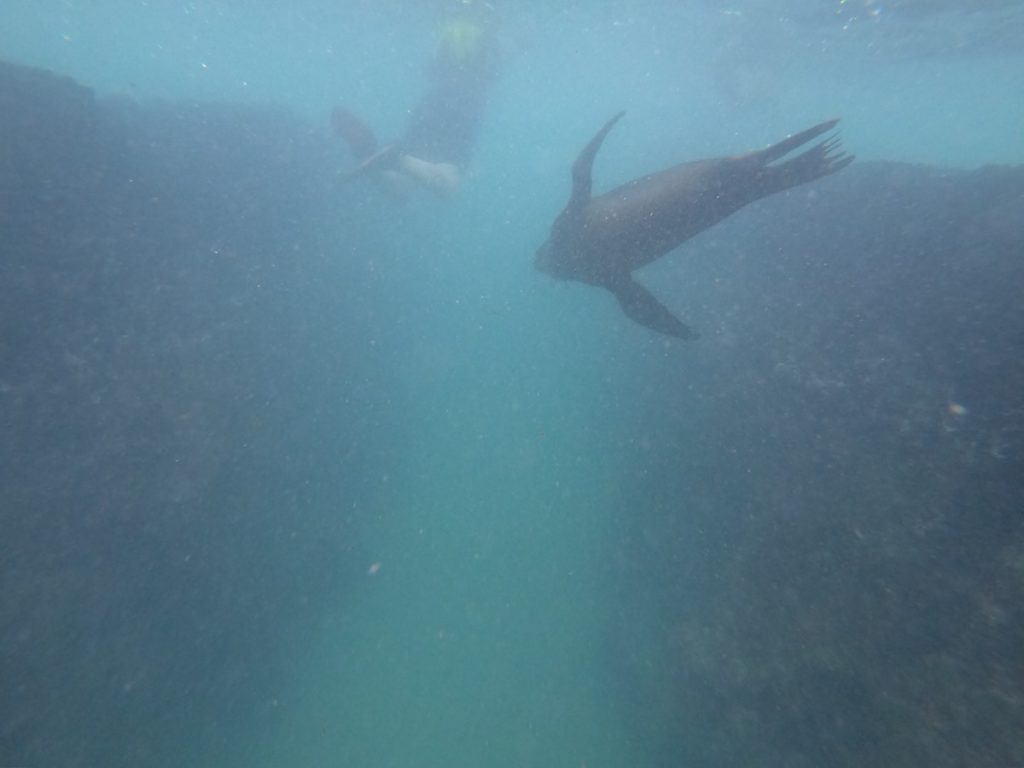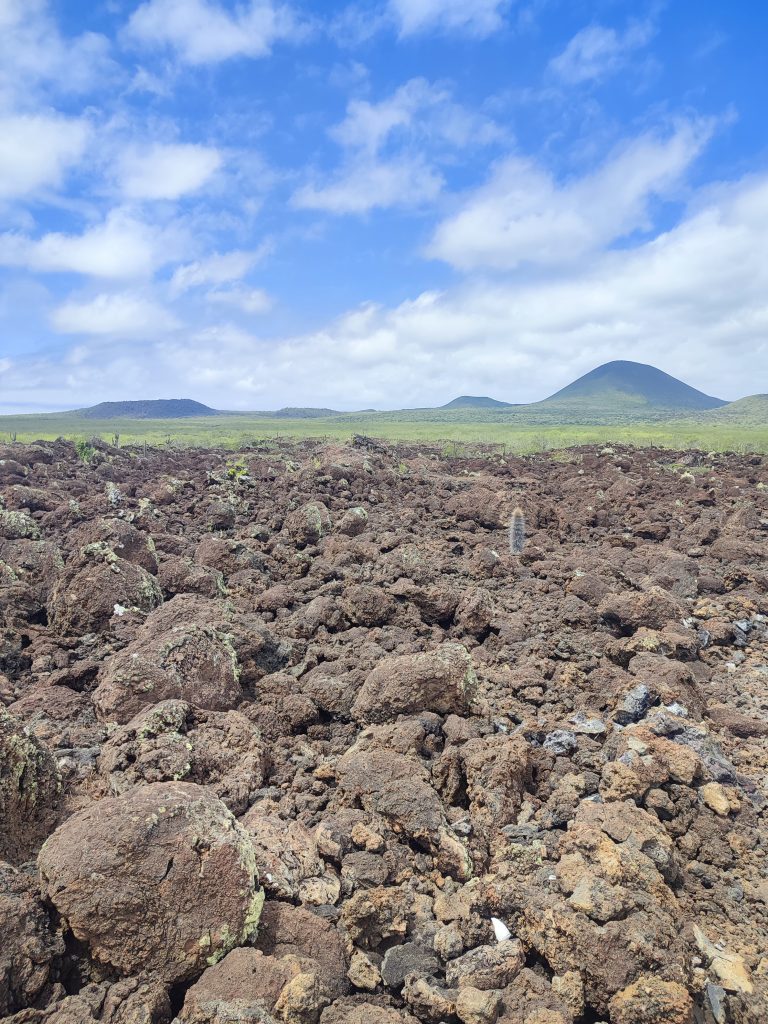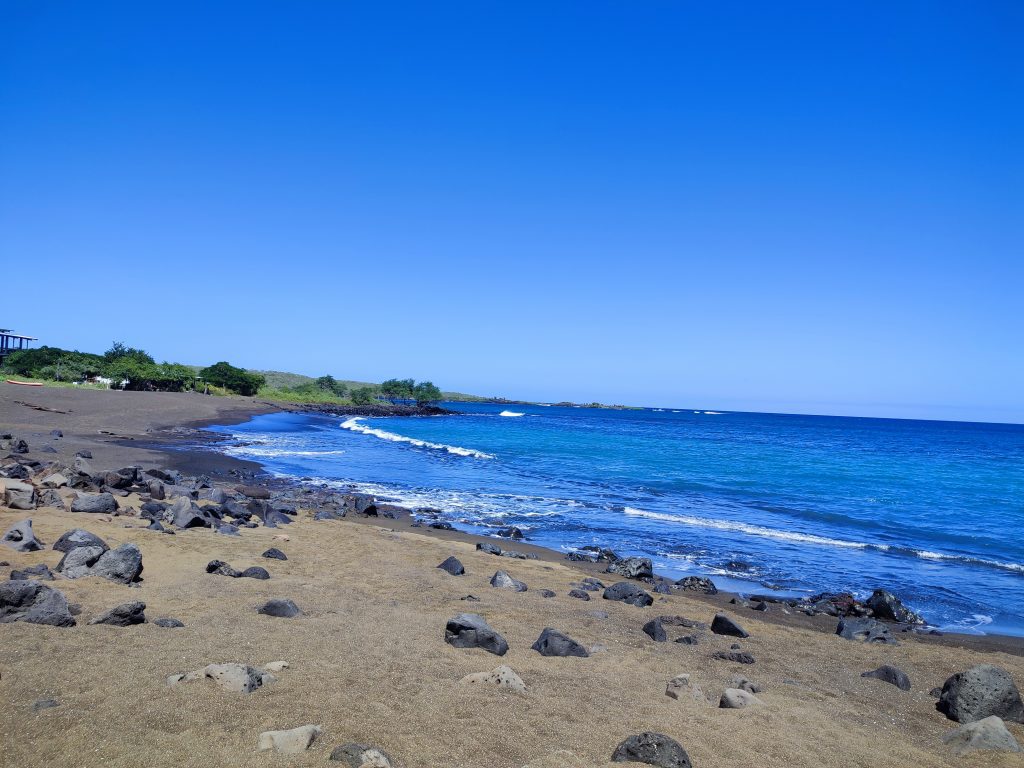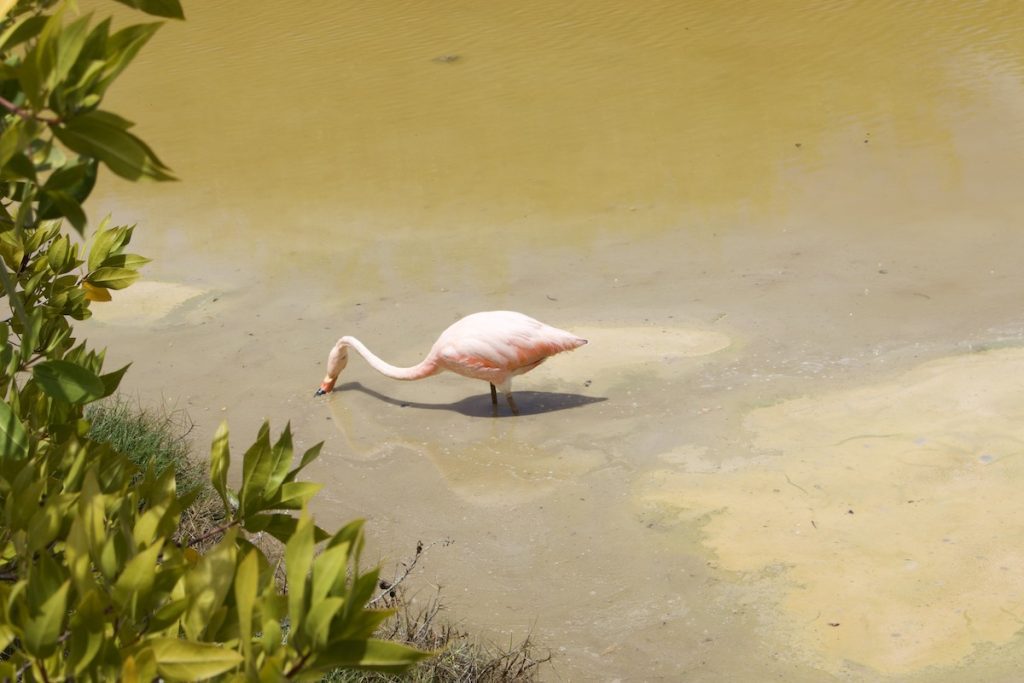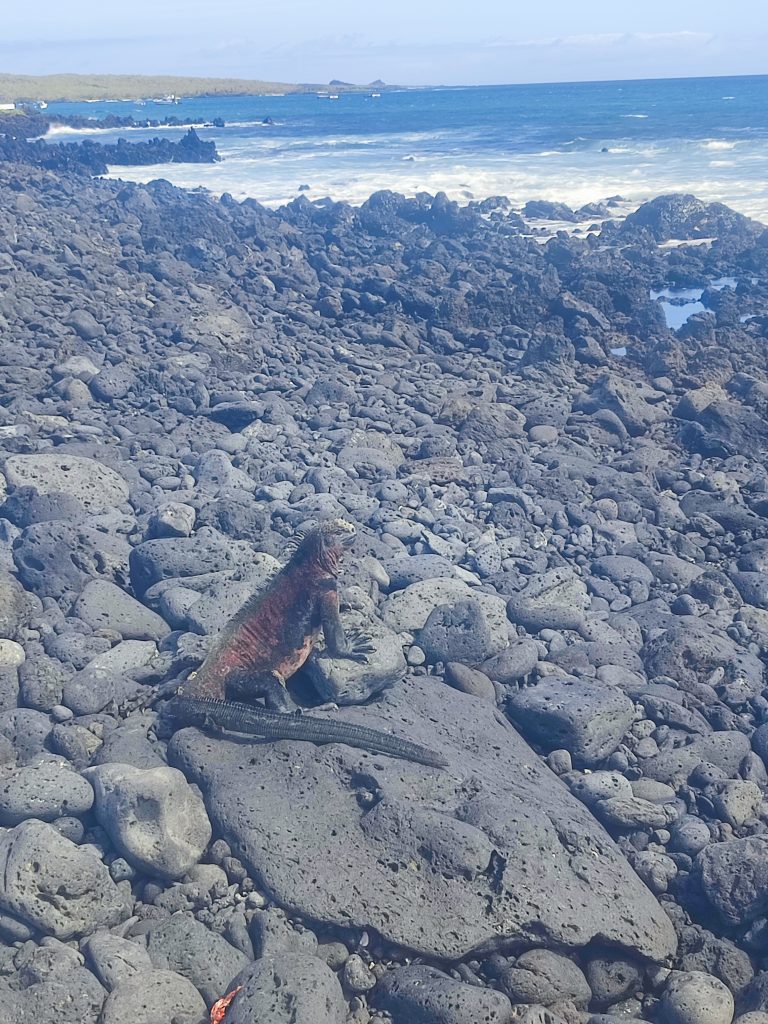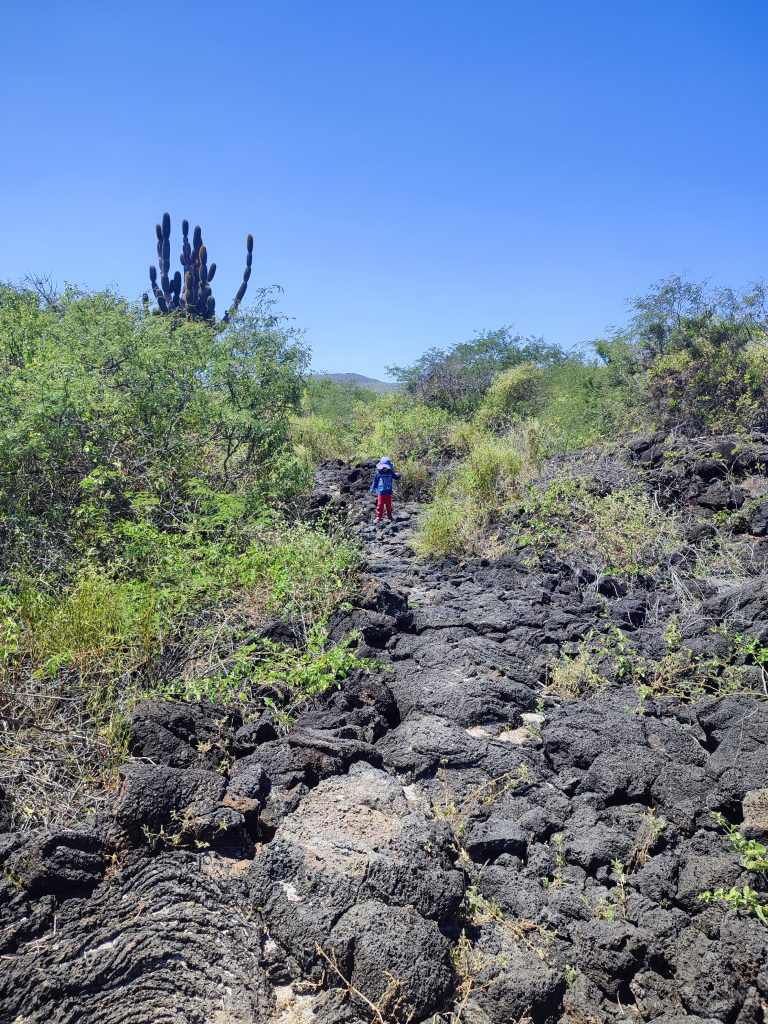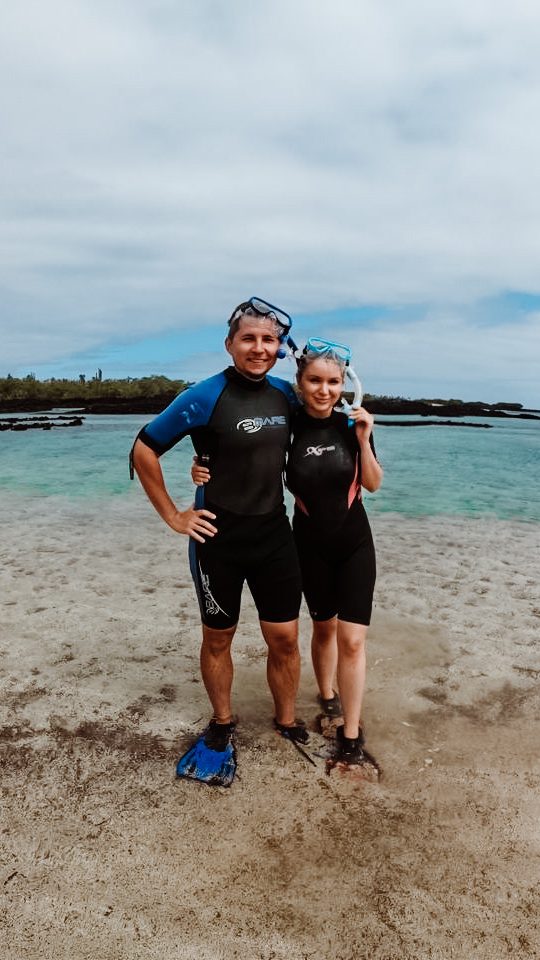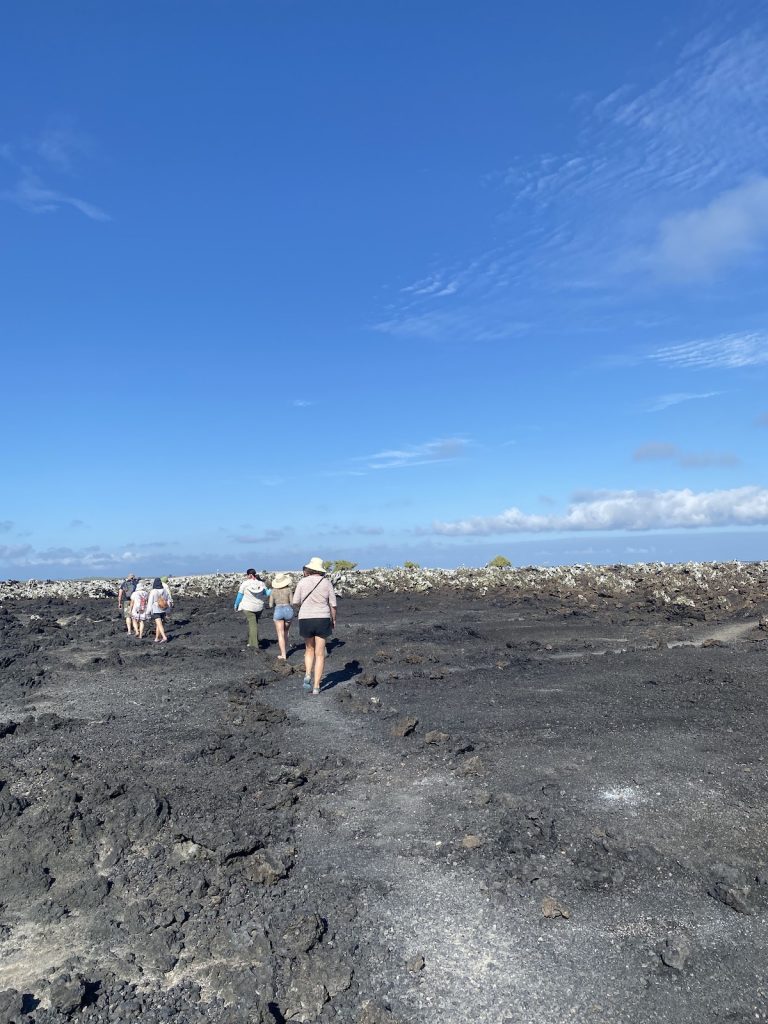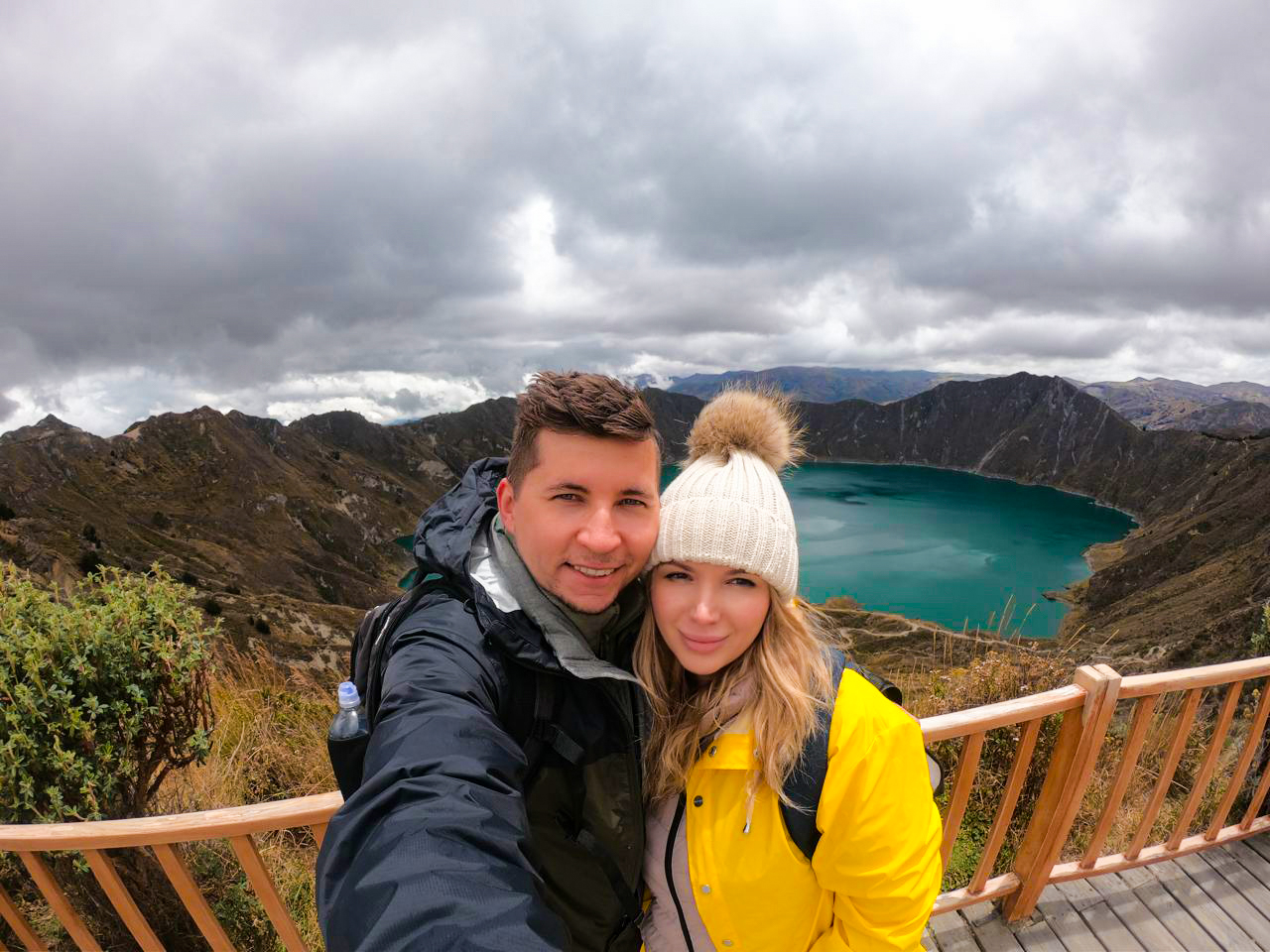Floreana Island, or Charles Island (also called Santa Maria Island), stands as the southernmost of the Galapagos Islands. Although it’s one of the smaller large islands, covering roughly 12 by 15 kilometers and reaching an elevation of 640 meters (2000 feet), it’s packed with unique experiences.
Floreana offers an intriguing slice of Galapagos history, shaped by pirates, whalers, and some of the archipelago’s earliest settlers. The island is even tied to the Galapagos Affair murder mystery, adding an extra layer of intrigue for those interested in its past. Yet, there’s also an abundance of wildlife and natural beauty here. It’s home to Devil’s Crown, considered one of the world’s top snorkeling spots, though the tour is equally appealing to non-snorkelers as well.
Looking back, seeing Galapagos flamingos required some planning – from timing our visit during nesting season to knowing the best viewing spots. Skip the uncertainty I faced and get a FREE personalized Galapagos trip quote from my trusted local experts who know exactly when and where to spot these stunning birds. Your booking helps support both this blog and local Galapagos communities.
Plan perfect trip to Ecuador & Galapagos
I spent countless hours researching everything about traveling to Ecuador, and I created this blog for fellow travel enthusiasts who want the best, most reliable information. But if you want to save time, we’ve partnered with the top local agency to plan your dream trip.
How to Get to Floreana Island
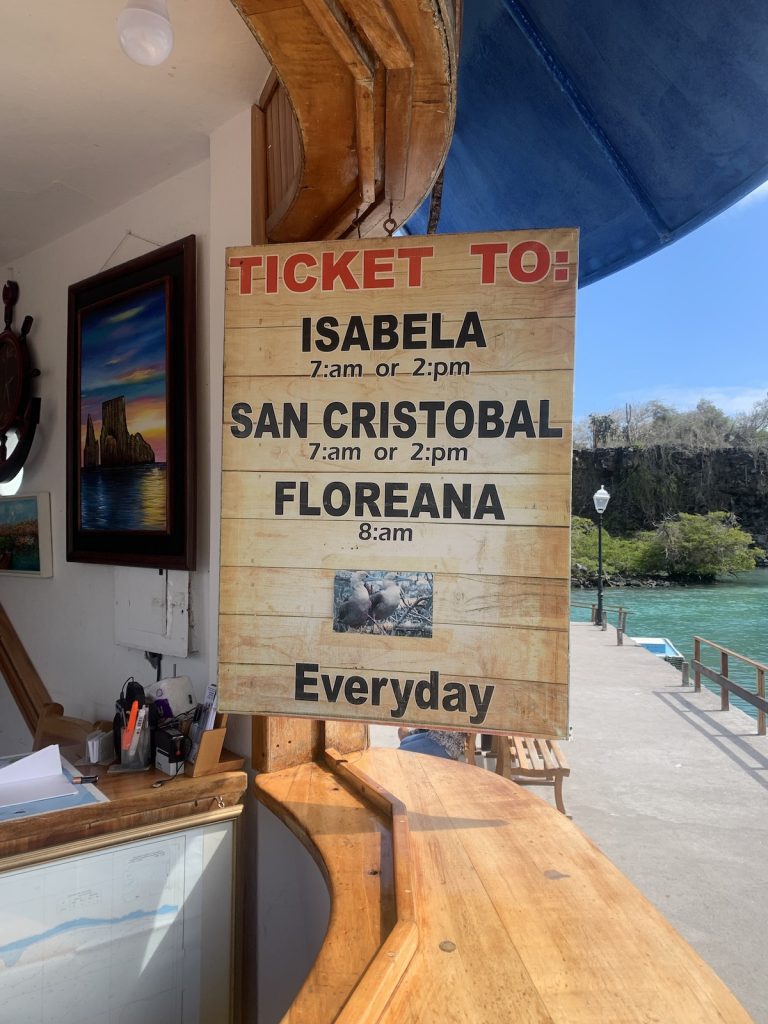
The easiest way to experience Floreana’s unique sites is by joining a Galapagos cruise that includes it in the itinerary. Since not all cruises stop at Floreana, it’s best to confirm with your travel agent before booking.
Alternatively, Floreana day trips are available from Santa Cruz Island, though they can be lengthy and leave limited time for exploration. For a more relaxed visit, consider staying a few nights on Floreana itself, allowing for a deeper dive into its history and wildlife.
Hotel Wittmer and Floreana Lava Lodge are both excellent choices for accommodations, but it’s wise to book early, as they tend to fill up quickly.
Getting to and from Floreana by the local motorboat ferry can be tricky, as the service is not entirely reliable and doesn’t run daily. We’d recommend checking the schedule in advance and booking your ticket early to ensure a smooth trip.
Wildlife in Floreana Island
The wildlife at Punta Cormorant is another major highlight of Floreana Island. We visited the stunning green-sand beach, which offers fantastic opportunities to see a variety of species up close. It’s an ideal spot for anyone looking to experience the unique fauna of Floreana.
We were thrilled to spot pink flamingos, Sally Lightfoot crabs, and green sea turtles around Punta Cormorant, along with the charming joint-footed petrels. Blue-footed boobies, Darwin finches, and even a few penguins made appearances, making Floreana Island a fantastic destination for seeing many iconic Galapagos species in one place.
Another unforgettable highlight on Floreana is Devil’s Crown, a famous snorkeling and diving site. Located northeast of the island, this submerged volcanic cone provides a unique underwater experience that we couldn’t miss.
During our time snorkeling at Devil’s Crown, we encountered an array of marine species—graceful sea turtles, playful sea lions, and even a few sleek sharks. The variety of vibrant fish was mesmerizing, each one adding color and life to the underwater scene. We felt especially lucky to spot a few elegant rays gliding through the water, either near us or deeper down. Floreana Island’s underwater biodiversity truly offers an unforgettable experience that any nature lover should not miss.
Puerto Velasco Ibarra
Floreana’s small population of around 100 residents is split between the coastal town and the volcanic mountains. The only hotel here is Pension Wittmer, run by the Wittmer family, who are descendants of one of the earliest families to settle in the Galapagos. It’s a charming place that also has the only telephone on the island. The hamlet itself is quite simple, featuring a recently built church and a single school staffed by two teachers. There are no restaurants or bars, so visitors should come prepared for a very quiet, self-sufficient experience.
Floreana Attractions
Floreana Highlands – Asilo de la Paz and Cerro Alieri
The hike up to Floreana’s highlands is challenging, reaching an elevation of 450 meters, so sturdy, closed shoes are a must. If you want an easier journey, transportation can be arranged from Puerto Velasco Ibarra. At Asilo de la Paz (Peace Haven), you’ll find the freshwater spring that was essential to the early settlers and passing ships. There’s also an intriguing pirate cave where people once lived, adding a touch of adventure.
For plant lovers, Cerro Alieri is a must-see, boasting over 48 plant species, with 56% being native and 33% endemic to the area—a paradise for botanists and nature enthusiasts alike.
Floreana Black Beach
Floreana’s main town, Puerto Velasco Ibarra, offers the unique Galapagos Black Beach, where contrasting colors create an eye-catching landscape perfect for memorable photos. Sea lions are the true residents here, basking on the beach and playing in the water, making it a lively spot for both swimming and snorkeling. If you’re lucky, you might even catch a glimpse of a Galapagos penguin or a sea turtle passing by, adding even more charm to this picturesque location.
Cormorant Point
A brief hike from Cormorant Point takes you to a serene white sand beach, a nesting ground for Green Sea Turtles, where rays and reef sharks often swim in the shallow waters. Blue-footed boobies frequently dive nearby, adding to the lively scene. Cormorant Point stands out for its rich variety of vegetation, including native species, and its sandy shores often hide Sting Rays—so it’s wise to tread carefully along the coast.
For those keen on snorkeling, the olivine beach offers access to waters teeming with life. It’s common to encounter sea turtles, playful sea lions, schools of reef fish, white-tipped reef sharks, and even penguins here, making it a fantastic spot for underwater exploration.
Have questions about your upcoming Galapagos trip? Join my Galapagos Reddit community and ask other travelers who recently visited the islands. Get up-to-date tips, real experiences, and honest advice from other travelers (I ban tour agencies and resellers).
Post Office Bay
Post Office Bay offers a fascinating glimpse into the human history of the Galapagos. Dating back to 1793, whalers set up a makeshift post office here by placing a wooden barrel for mail collection. Sailors passing through would leave letters in the barrel, trusting the honor system for others to deliver them on their way to various destinations. Surprisingly, this tradition has endured through the centuries.
Today, visitors can join in by leaving postcards and searching through the pile, choosing ones they can personally deliver. A short walk from the barrel brings you to a lava tube, where a descent by ladder reveals a path that extends several hundred yards within the dark lava tunnel. It’s an exciting, historical stop that connects the past with the present for all who visit.
Devil’s Crown
Devil’s Crown is an impressive snorkeling destination in the Galapagos, formed from an eroded, partially submerged volcanic cone. Its coral reef at the center attracts vibrant marine life, making it a hotspot for seeing penguins, sea lions, sea turtles, dolphins, and a wide variety of fish. However, the currents can be strong, so it’s best suited for confident swimmers.
For those who prefer to stay dry, the view from above offers an incredible seabird-watching experience. Red-billed tropicbirds, herons, pelicans, and blue-footed boobies nest in the crater walls, often diving into the water for fish—a true spectacle for nature enthusiasts.
Enderby, Champion, and Gardner Islets
The islets surrounding Floreana Island—Enderby, Gardner, and Champion—offer unique opportunities to encounter Galapagos wildlife. Enderby Islet is known for its abundance of sharks, while Gardner Island impresses with striking granite formations and vast underwater tunnels. Champion Islet stands out as a top snorkeling destination, where a variety of colorful fish, sea turtles, and playful sea lions can be spotted.
For birdwatchers, Champion and Gardner are particularly special, as they’re the only locations in the Galapagos where you might catch a glimpse of the rare and endangered Floreana Mockingbird.
Trust me, while flamingo spotting is amazing, combining it with other Isabela Island highlights makes for an unforgettable day! Want an expertly planned itinerary that balances wildlife viewing with other activities? Get a FREE quote from my recommended local agency. Your booking supports this blog and local Galapagos businesses.
Best Time to Visit Floreana Island
Floreana Island’s weather shifts between cooler, drier months from June to December and warmer, wetter months from December to May. While the temperature varies, Floreana is suitable for a visit year-round, with no specific “best time” regarding weather.
However, timing your visit with the wildlife seasons could make your experience even more memorable. From December to May, visitors have a higher chance of witnessing pink flamingos and green sea turtles nesting—a unique highlight that adds a special touch to exploring Floreana.
Bottom Line
Floreana Island is indeed a fascinating destination for Galapagos visitors. Here, you can delve into the unique challenges early settlers faced and uncover the intriguing Floreana Affair mystery. The island’s natural beauty is captivating, especially the vibrant marine life at its snorkeling sites.
If Floreana Island is on your Galapagos itinerary, we’re sure you’ll have an incredible time exploring these remarkable attractions and immersing yourself in its unique history and nature. Enjoy every moment of this unforgettable experience!
Plan perfect trip to Ecuador & Galapagos
I spent countless hours researching everything about traveling to Ecuador, and I created this blog for fellow travel enthusiasts who want the best, most reliable information. But if you want to save time, we’ve partnered with the top local agency to plan your dream trip.

